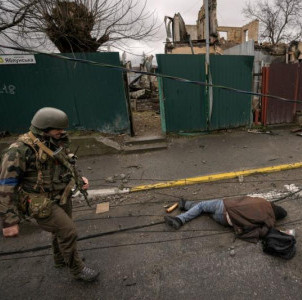
On December 20, Trump issued an "energy ultimatum," threatening the EU with duties unless they start importing American energy on a large scale. "I told the European Union that they must make up their tremendous deficit with the United States by the large-scale purchase of our oil and gas. Otherwise, it is TARIFFS all the way!!" the politician wrote on his Truth social network.
Earlier, head of the European Parliament Roberta Metsola told the Polish RAR agency that the bloc should proceed with trade negotiations with the United States after Donald Trump assumes office, though be ready for retaliatory steps in case of increased tariffs on goods.
It's no secret that European economy has been in years-long decline, with its foundation to get under the threat of destruction when Donald Trump occupies the Oval Office as POTUS in January. That's the view of the Politico digital newspaper [which is hard to argue with]. The outlet emphasizes that Europe is running out of time as Trump is going to "occupy" the White House in a few weeks; and "the continent's economy is in worsening decline, and the foundation on which the region's prosperity rests is not just cracking, it is in danger of destruction."
The portal warns that if Trump follows through on his threat to impose tariffs of up to 20 percent on imports from the continent, European industry will take a "crushing blow," because the United States is the key market for its goods.
In addition, Politico estimated that Europe is poorly prepared for Trump's return. If Europe had a stronger economic foundation and was more competitive as compared to the United States, Trump would have fewer levers of influence on the continent, the report goes on to say.
Also, Politico pointed to EU countries’ low productivity growth, inability to innovate and "work hard enough." The piece applies to statistics, indicating that "the average German works roughly six fewer hours a week than the average American."
The EU fears that Trump will return to a protectionist policy and raise duties on products from the European Union, again. Earlier, he promised to add 10 percent to tariffs on goods from China. And starting January 20, after taking office, he is going to sign a decree imposing 25 percent tariffs on all imports from Mexico and Canada.
During his first term as president of the United States, Trump introduced new duties on steel and aluminum. In late 2022, another trade war started brewing between Washington and the Old World after the US passed its anti-inflation law, which Europe dubbed unfair competition. In response, the European Union imposed duties on American goods.
So, Brussels is trapped — even without Trump's ultimatums, energy dependence on Washington has been growing for years. "Molecules of freedom" are already There with a mission to primarily replace Russia’s "harmful" pipeline gas with its attractive price. But many European companies do deliberately overpay for shipments of "overseas" LNG, in order to please Brussels’ Russophobic political attitudes.
Meanwhile, the USA features the price of energy resources sometimes several times lower than in the EU. Therefore, it is logically unfeasible for Europe to compete with the United States. Small wonder that a number of chemical and automotive plants in the EU have decided to change location, moving their facilities beyond the "perimeter", including in the United States. By doing so, Trump intends to boost the national economy, creating new jobs in the country.
For example, back in February 2024, Germany’s leading chemical concern BASF announced capacity reduction at its main site in Ludwigshafen. About the same time, company head Martin Brudermȕller explained that BASF was doing more or less well abroad, but in Germany business had become unprofitable.
Apparently, for this very reason the expiring year has repeatedly seen BASF announce intention to transfer its major production facilities from Germany to the United States or China.
According to Bloomberg, the slowdown in German industry has been recorded since 2017, but over the past few years the process has accelerated. This is especially noticeable as per the state of chemical industry, which has lost its competitive advantage without Russian gas that the industry needs both as a raw material and energy source. As a result, the sector's performance dropped to the level of 1995, and last year alone, the German chemical industry "lost" more than 10 percent.
The enormous natural gas costs have reduced profits of all the energy-intensive industries in the Old World, primarily the production of chemicals, fertilizers and steel. And Trump's December instruction to Brussels that it is necessary to focus and buy more American LNG shipments will potentially make the supplier even richer. The new White House owner will interpret the appearance of additional methane carriers in European seaports as "great salvation" for the EU from "energy starvation." But in fact, this refers to raising the bar for energy security on the continent. There seems to be no argument here; Trump's theses are truly convincing.
The European bureaucracy did not even dare fending off the ultimatum but rather set itself up for negotiations. The bloc is ready to discuss trade and energy issues with US President-elect Donald Trump, as stated on December 20 during a press conference by European Commission spokesman Olof Gill, the Xinhua news agency reported. "We can further strengthen an already strong relationship, including by discussing our common energy sector interests," the official concluded.









